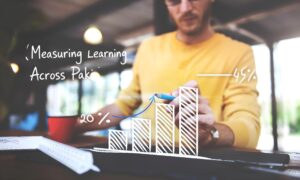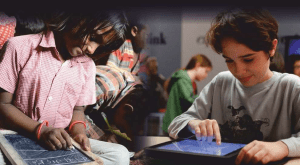INCLUSIVE EDUCATION
Pakistan’s Ministry of Federal Education and Professional Training adopts UNESCO’s concept of inclusive Education in its 2017 National Education Policy (NEP):
“An approach that seeks to meet the needs of students from diverse backgrounds by broadening their engagement with Education, fostering a sense of belonging in their schools and communities, and decreasing their likelihood of being left behind academically. It requires a firm belief that it is the duty of the regular system to educate all children, as well as revisions and alterations to the curriculum’s content, methods, structures, and techniques, and an inclusive vision that includes all children of the proper age range.”
It explains that “inclusion is advantageous not just for children with special needs but also for all children, regardless of gender, race, personality traits, or parental economic situation.”
The inclusion of children with special needs in ordinary classrooms has “gone through a quick shift from integration, mainstreaming, and inclusion of children with disabilities” in recent years. In 2005, the federal and provincial governments signed the Islamabad Declaration on Inclusive Education. The recent education sector plans for Punjab (2019–2023), Sindh (2019–24), Balochistan (2020-25) and Khyber Pakhtunkhwa Free Compulsory Primary and Secondary Education Act (2017) highlight inclusive education in contrast to Special Education as a future goal.
National Education Policy (NEP) was implemented in 2017, and it placed a premium on accommodating students with diverse learning needs. The policy aims to increase opportunities for special and inclusive education by ensuring that “50% of all children with disabilities will be in school by 2025 and build accessible learning environments in 50% of current formal education institutions at all levels.”
The Rights of Persons with Disability Act for the ICT (Islamabad Capital Territory) was passed in 2020, marking a defining moment for Pakistan. While it supports the creation of special educational institutions for students with moderate to severe impairments, it is abundantly evident that inclusive Education must be implemented in regular classrooms with enough resources.
For CREDP, Education is a fundamental right, and all children should have access to it. Simply put, Inclusive Education aims to ensure that no student is left behind due to any obstacle in the education system. While all children have a right to free and excellent Education, there are important distinctions in how schools serve particularly vulnerable communities. Currently, there are several challenges to implementing effective IE policy in Pakistan at both the macro and micro levels. Among various vulnerable groups, the state must provide the clearest delineation and direction in the schooling system for children with disabilities.
LATEST
UPDATES

Measuring Learning Across Pakistan: What NAT 2026 Means
NAT 2026 includes private schools and introduces foundational assessments, aiming to improve learning outcomes in Pakistan.
LATEST PUBLICATIONS

Measuring Learning Across Pakistan: What NAT 2026 Means
NAT 2026 includes private schools and introduces foundational assessments, aiming to improve learning outcomes in Pakistan.
LATEST PUBLICATIONS

Bridging the Gap: The Impact of the Digital Divide on Education in Pakistan
In the wake of COVID 19, the world was compelled to swiftly adopt a digital lifestyle.